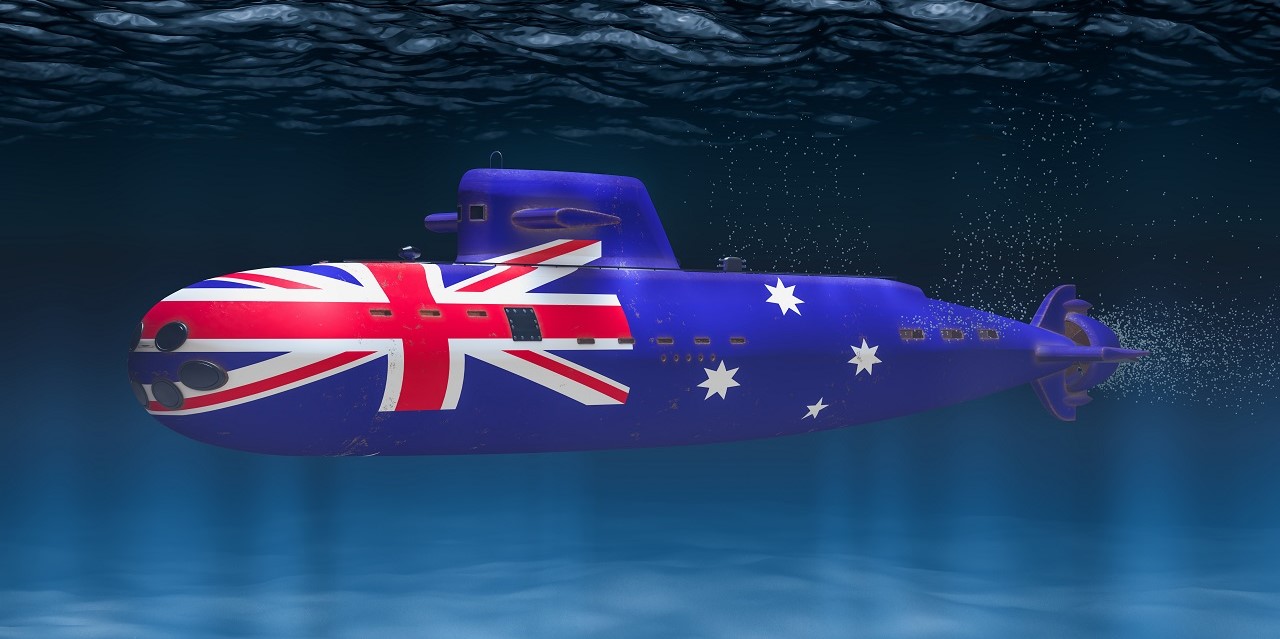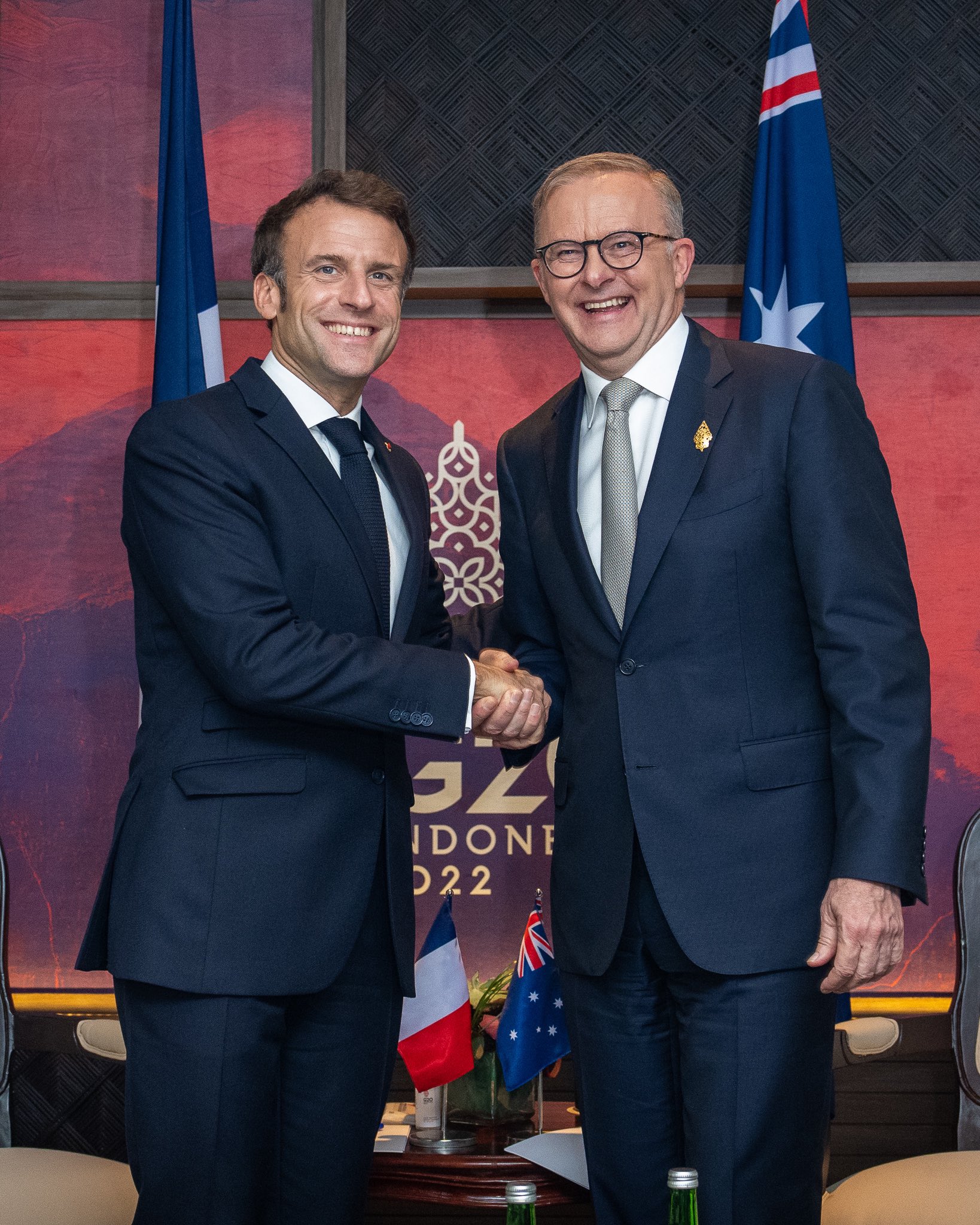Recovering from the storm generated by the AUKUS deal among Australia, the United States, and the United Kingdom in 2021, France’s military personnel conducted a large-scale Humanitarian Aid and Disaster Relief (HADR) exercise with their Australian counterparts in a bid to salvage their sinking ties.
France was cut up with Australia following the cancellation of a French conventional submarine deal and Canberra’s signing of the AUKUS deal for nuclear-powered vessels in 2021.
The troops from Australian Defense Forces (ADF) reportedly practiced the humanitarian crisis responses along with over 2,200 French military troops for two weeks, indicating that the two nations are making a bid to move past the bitter taste left by the aborted submarine agreement, ABC News reported.
After a few years of hiatus triggered by COVID-19, Exercise’ Croix Du Sud’ this year featured 3,000 personnel from 19 countries in response to a scenario where a tsunami hit the French territory in the Pacific, around 1,500 kilometers east of Queensland. It is the largest multinational exercise ever held in New Caledonia, according to the French Armed Forces.
With 240 soldiers, Australia’s force is the second-largest after the French contingent in the exercise. Australian Defense Force’s contingent commander for the exercise, Captain John Cowan, said, “This Croix Du Sud is the largest in this iteration of this series of exercises. It’s got the largest number of ships, the largest number of aircraft, and the greatest number of land forces.”
The drills saw fifteen aircraft and ten navy vessels participating, including the French Landing Helicopter Dock Dixmude, which recently berthed in Townsville. On its part, Australia dispatched a C-27J Spartan aircraft flown by flying officer Hayden Krammer of the Royal Australian Air Force (RAAF) as well as vessel ‘Reliant.’
? New Caledonia ➡️ #YourADF will wrap up their involvement in Exercise Croix Du Sud this week, after working with 19 nations to prepare for humanitarian and disaster relief missions. ?
? https://t.co/tMJGCwYuEq#CDS23 <1/2> pic.twitter.com/hwDvehzkFL
— Defence Australia (@DefenceAust) May 3, 2023
Alongside members of the US Coast Guard and the French Navy, the Australian troops took part in humanitarian assistance drops and a dive mission to discover World War II explosives abandoned in New Caledonian waters.
“Australia has an essential role,” said France’s High Commissioner in New Caledonia, Louis Le Franc. “Because it is a big country here in the South Pacific, it’s the biggest.”
At exercice croix du Sud, clearance divers from ???? ?? are crossing know-how and sharing methods for underwater intervention from @Australian_Navy's ADV Reliant, a ship specialising in humanitarian missions. #CDS23 #YourADF pic.twitter.com/J3LIXCVucE
— Forces Armées en Nouvelle-Calédonie (FANC) (@FANC_Officiel) April 28, 2023
The resolve shown by the two sides has been interpreted as a signal that the two countries are willing to salvage the ties that reached a nadir after Australia abandoned the US$90 billion contract for 12 French-designed diesel-powered attack class submarines with France and signed the AUKUS pact with the US and the UK in September 2021.
When Australia announced it was walking away from the deal, French Foreign Minister Jean-Yves le Drian said it was a “stab in the back.” The contract’s unexpected termination sparked a diplomatic crisis, with France recalling its ambassadors from Australia and the United States. French President Emmanuel Macron went so far as to call the former Australian Prime Minister Tom Morrison a liar.

When the current Australian Prime Minister, Anthony Albanese, came to power last year, he signaled that the settlements with the French would be used to build bridges with the country.
After months of bitter insinuations, in June 2022, the Labor Government of Australia announced that it would pay Naval Group US$835 million as compensation for junking the deal.
Australia has come a long way since then, especially with the AUKUS agreement and its decision to overhaul its defense forces to contend with the rising China challenge. It has also signaled that it is ready to put the submarine episode behind, with France cooperating to bring about normalization in ties.
Moving Past The Diplomatic Fall Out
The Australian decision led to diplomatic tensions between the two states spiraling out of control. However, the collaboration in bilateral and multilateral military drills is evidence that the leadership of the two sides has decided to move on.
France and Australia are major stakeholders in the Indo-Pacific region, and both countries seem to acknowledge that, especially amid rising military challenges in the region. Earlier this year, the two sides also met for the second Australia-France Foreign and Defense Ministerial Consultations.
One major agenda of the meeting was a combined plan to produce 155mm artillery shells with a French business producing the shells and an Australian company providing the gunpowder to defend Ukraine against a Russian invasion. However, it showcased a new wave of cooperation between the two sides.
French ambassador to Australia, Jean-Pierre Thébault, went so far as to claim that the relationship was entirely restored following the announcement of the co-production of the artillery shells.

According to an analysis published by Iowy Institute, this assertion is a bit of a stretch considering how choices like Australia’s early retirement of its fleet of Taipan helicopters built in Europe and replacement with 40 UH-60M Black Hawk helicopters made in America continue to exacerbate tensions between the two nations.
However, the two countries have come a long way since the junking of the submarine deal. In March this year, Australia, France, and Japan participated in the Cope North airpower exercise.
The US Air Force, US Navy, and Marine Corps (USMC) fighter and bomber aircraft, supported by aerial refueling and airborne early warning and control (AEW&C) aircraft, as well as Japanese fighters and French and Australian transports, were dispersed across 1,200 miles of the Pacific Ocean during the exercise.
The latest Croix Du Sud has further given momentum to the interaction between Australian and French troops, aiding in strengthening the overall relationship. France’s High Commissioner in New Caledonia Le Franc told ABC that France’s relationship with Australia is “excellent.”
“AUKUS is, first of all, an alliance between different countries,” he said. “I think despite the problems that you have referred to, France’s place here in the Pacific is important because it is completely integral to Australia’s, New Zealand’s, and Japan’s force to eventually confront any threats that might arise in the Pacific.”
- Contact the author at sakshi.tiwari9555 (at) gmail.com
- Follow EurAsian Times on Google News




